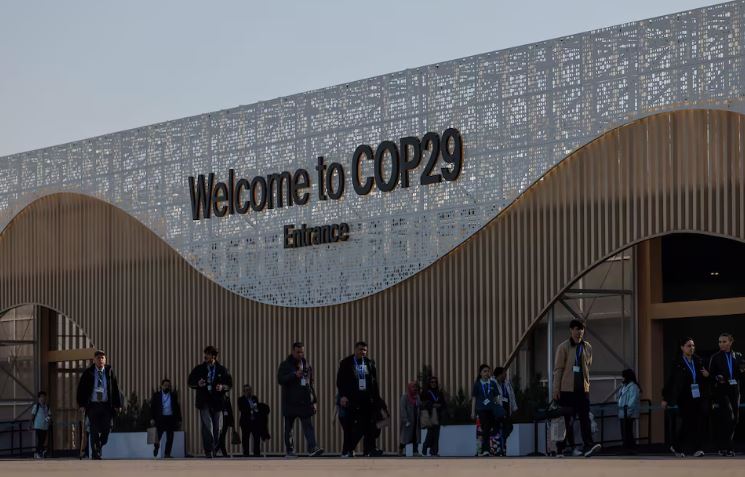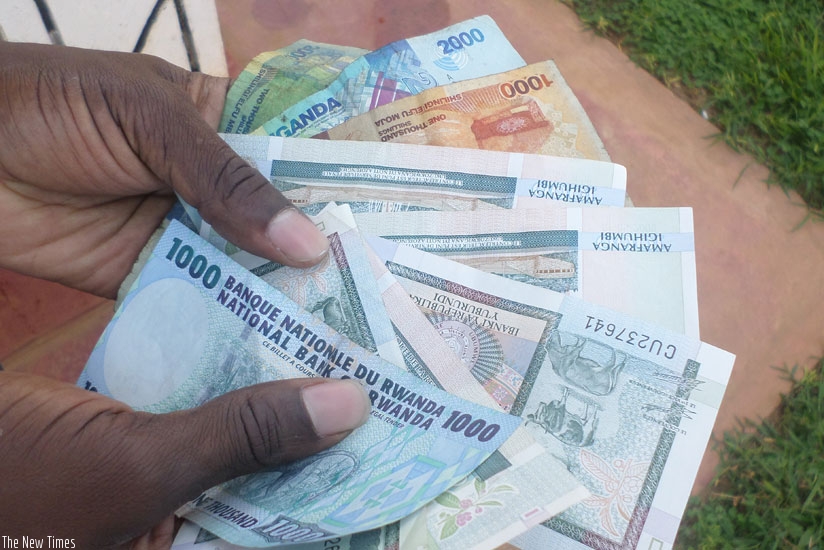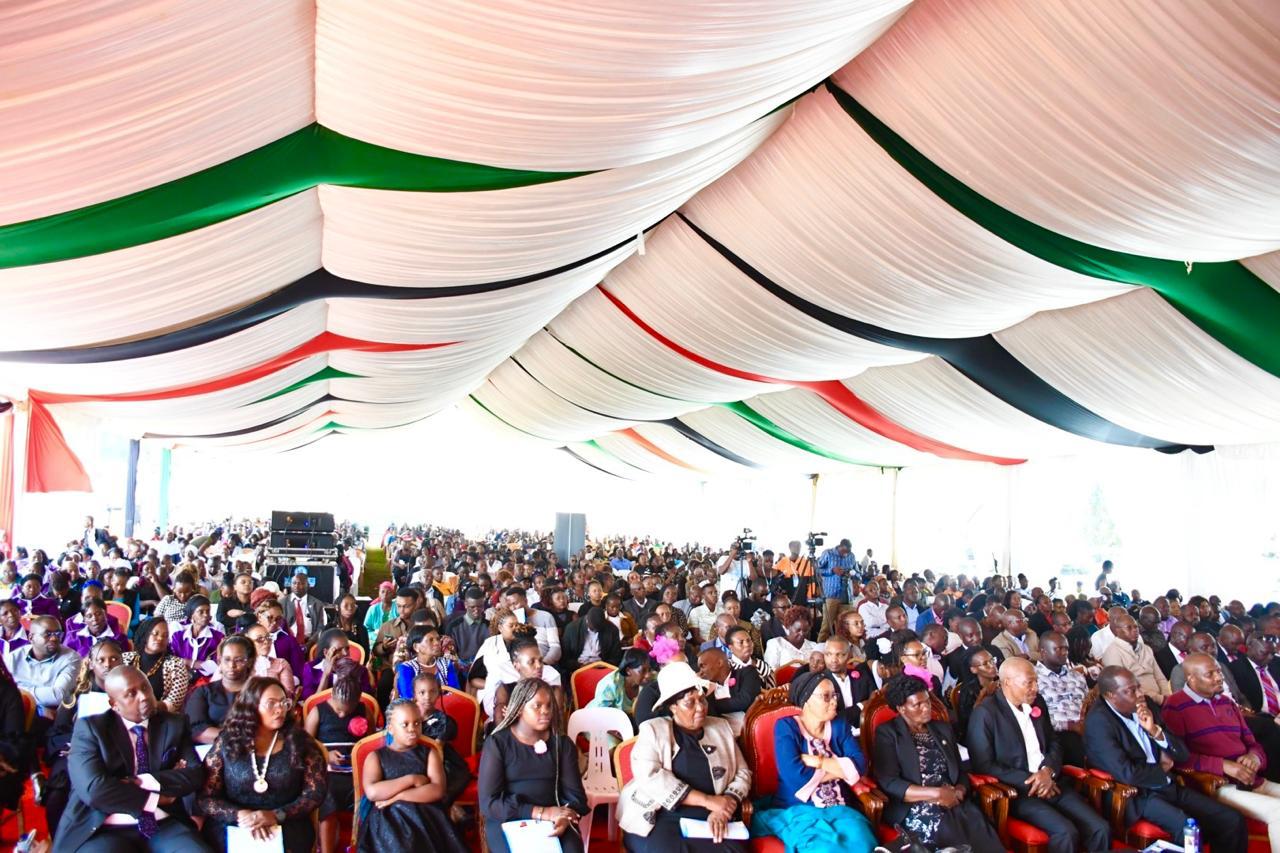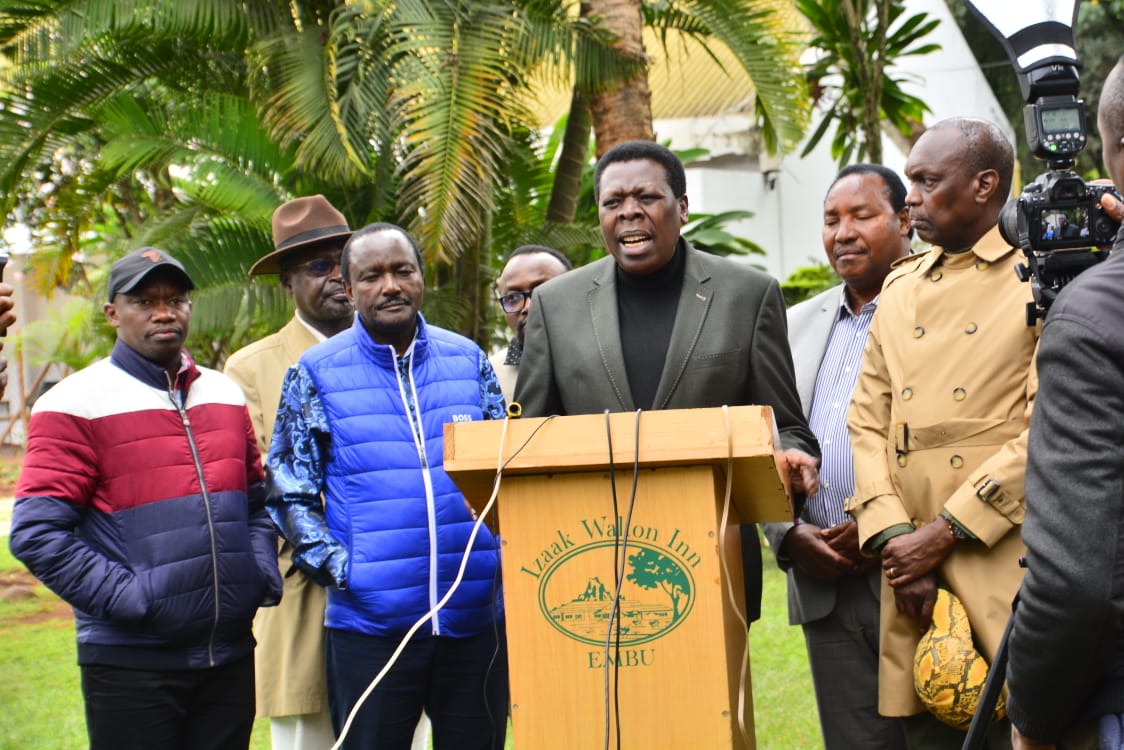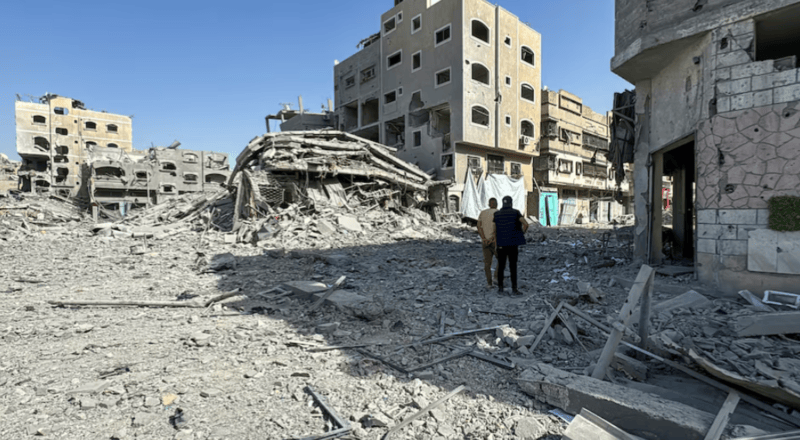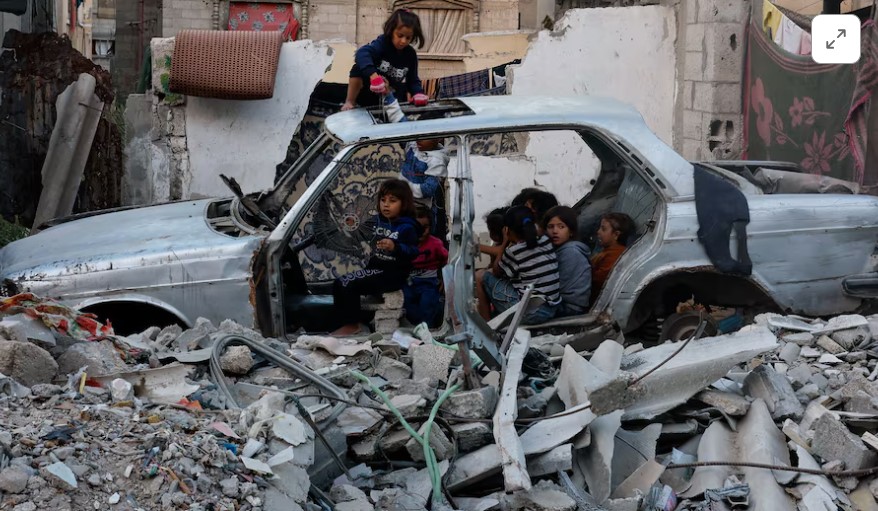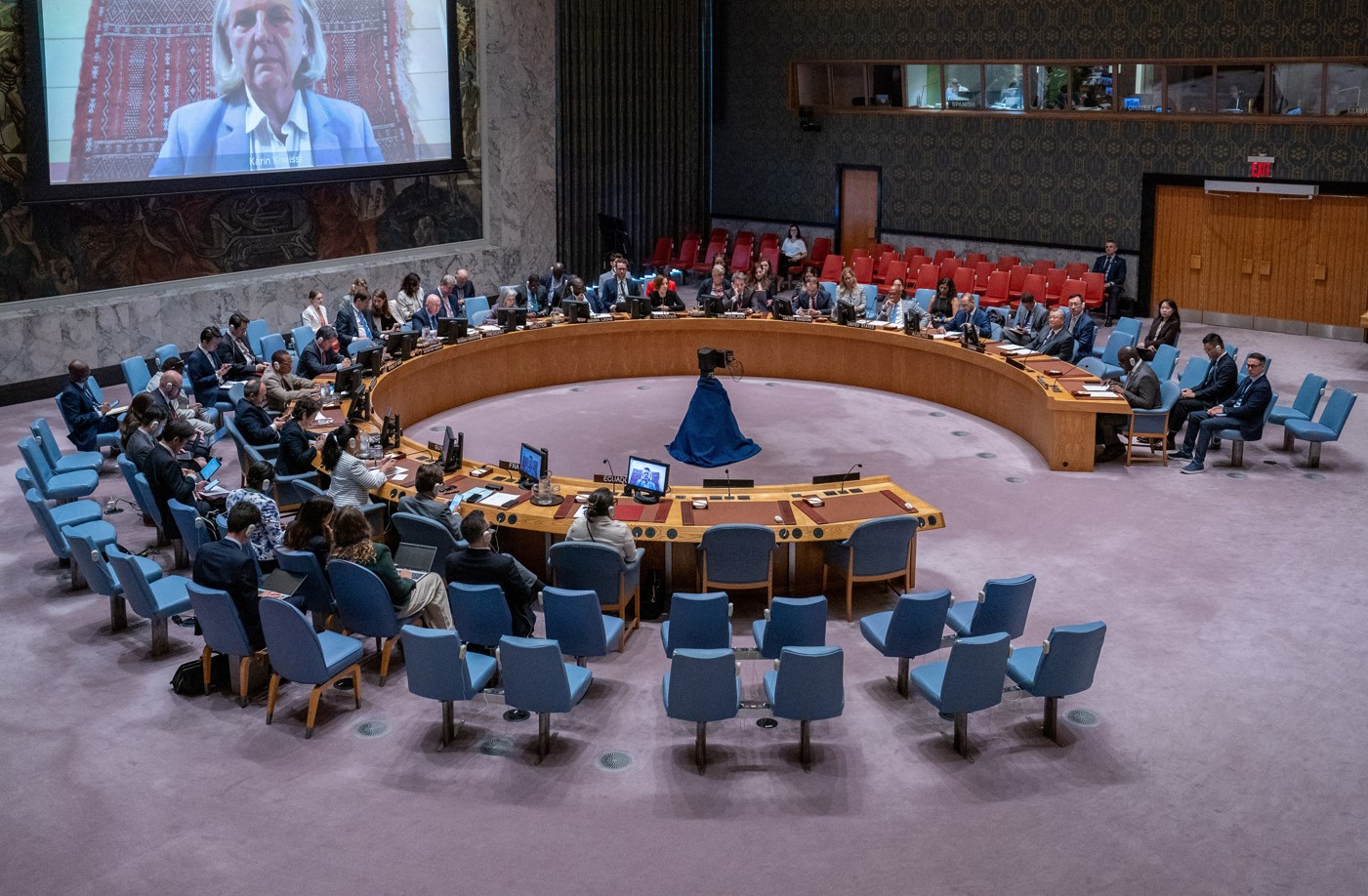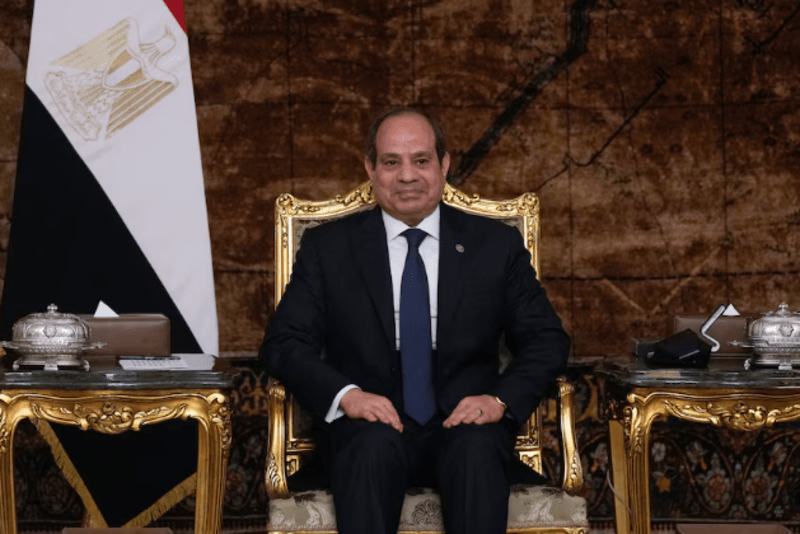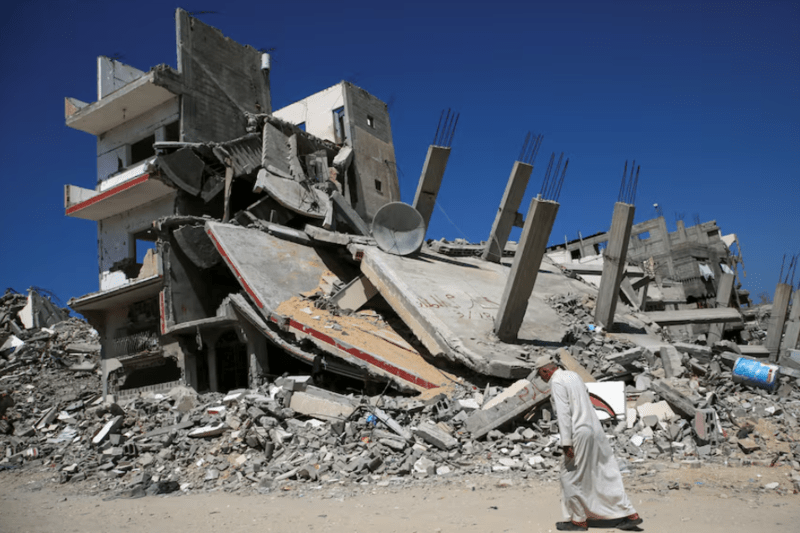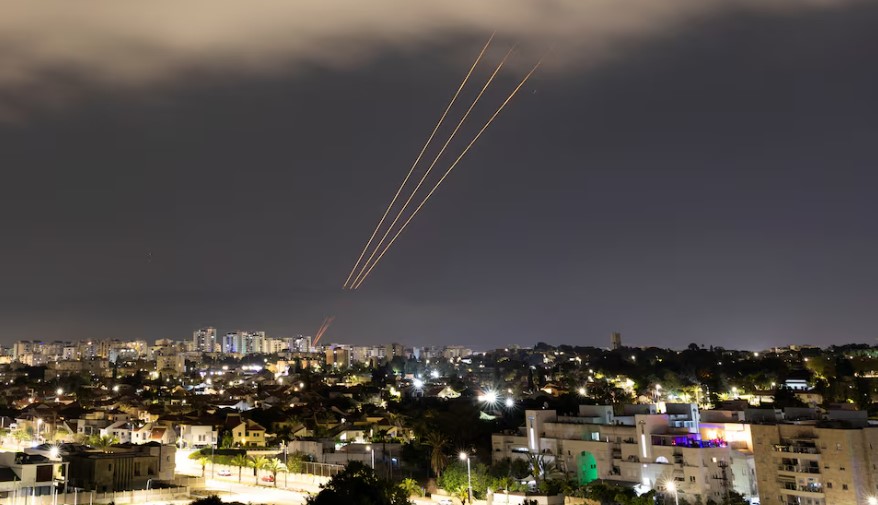US pledges 'flow' of aid to Gaza

By AFP |
The much-delayed aid began arriving Saturday under a deal brokered by US President Joe Biden with Egyptian and Israeli leaders.
The United States on Sunday vowed a continued flow of aid to the Gaza Strip, as a new convoy of 14 trucks entered the besieged and bombarded Palestinian enclave.
With the first of two convoys of humanitarian assistance now inside Gaza, the White House said Israel had agreed "there will now be continued flow of this critical assistance".
Keep reading
The United Nations estimates Gaza needs about 100 trucks a day to meet the needs of its 2.4 million residents, almost half of whom are believed to have been displaced by Israel's bombing campaign.
UN aid chief Martin Griffiths said the latest delivery of food, water and medical supplies was "another small glimmer of hope for the millions of people in dire need of humanitarian aid. But they need more, much more."
The much-delayed aid began arriving Saturday under a deal brokered by US President Joe Biden with Egyptian and Israeli leaders.
On the ground, the death toll has continued to mount.
Hamas-controlled authorities in Gaza said at least 80 people had been killed and 30 homes destroyed in renewed Israeli strikes on the besieged Palestinian enclave.
An AFP journalist saw the bodies of many children on the bloodied floor of a Gaza hospital morgue.
Distraught families wept as they came to identify the dead and embrace their loved ones for the last time.
"He was a man with no record, nothing to do with the resistance," said Wael Wafi, gazing at the body of his cousin.
Hamas militants stormed into Israel from the Gaza Strip on October 7 and killed at least 1,400 people, mostly civilians who were shot, mutilated or burnt to death on the first day of the raid, according to Israeli officials.
Israel says around 1,500 Hamas fighters were killed in clashes before its army regained control of the area under attack.
They also seized more than 200 hostages in the worst-ever attack in Israel's history.
More than 4,651 Palestinians, mainly civilians, have been killed across the Gaza Strip in relentless Israeli bombardments in retaliation for the attacks by the Palestinian Islamist militant group, according to the latest toll from the Hamas health ministry in Gaza.
'Preserve stability'
Israel's leaders have promised a full-scale ground invasion to dismantle Hamas.
Tens of thousands of Israeli forces are gathered at the border and already there appears to be a limited number of Israeli boots on the ground.
In one of the first indications of Israeli troops entering Gaza since October 7, the Israel Defense Forces on Sunday said that one soldier was killed and three others wounded during a tank operation inside the territory.
"This activity was part of the effort to dismantle terror infrastructure, clear the area of terrorists, and weapons, and locate missing persons and bodies," a military spokesperson said.
Israeli Defence Minister Yoav Gallant warned the war with Hamas could take months.
"It will take one month, two months, three months, and at the end, there will be no more Hamas," Gallant said.
Around the world, Israel's friends and foes alike warned against the war in Gaza spilling over into a full-scale regional conflagration.
Several Western leaders including US President Biden issued a joint statement Sunday after frantic diplomatic talks "to prevent the conflict from spreading" and to "preserve stability in the Middle East."
On Sunday, there seemed little sign that the conflict was being contained as Israel struck targets in Gaza, Lebanon, Syria and the West Bank while issuing a stark warning to regional foes against intervening in the war against Hamas.
Prime Minister Benjamin Netanyahu said that if Lebanon-based militant group Hezbollah were to get more deeply involved, it would be "the mistake of its life".
"We will strike it with a force it cannot even imagine, and the significance for it and the state of Lebanon will be devastating," he said.
Israeli strikes were reported against two airports in Syria, a mosque used by "terror operatives" in the West Bank city of Jenin and Hezbollah "military infrastructure" inside Lebanon.
Hamas, Hezbollah and Syria's government are all backed by Iran, which opposes Israel's existence and has warned the region could spiral "out of control".
Hamas leader Ismail Haniyeh spoke by phone with Iran's Foreign Minister Hossein Amir-Abdollahian on Sunday, the militant group said on Telegram.
During their call, "they discussed the latest developments" in the war, as well as the "use of all the possible ways to stop" Israel's campaign, it said.
'Brothers, stop'
With fears growing that the conflict could spread, Israel on Sunday admitted accidentally hitting an Egyptian border post, apologising for the incident which Cairo said had left an unspecified number of border guards with "minor injuries".
But Washington said it wouldn't hesitate to act in the event of any "escalation", just hours after the Pentagon moved to step up military readiness in the region.
"If any group or any country is looking to widen this conflict and take advantage of this very unfortunate situation that we see, our advice is: don't," US Defence Secretary Lloyd Austin said on ABC News.
On Sunday, Pope Francis used his weekly Angelus prayer in Rome to plead for an end to the bloodshed.
"War is always a defeat, it is a destruction of human fraternity. Brothers, stop!" he said.
Reader comments
Follow Us and Stay Connected!
We'd love for you to join our community and stay updated with our latest stories and updates. Follow us on our social media channels and be part of the conversation!
Let's stay connected and keep the dialogue going!

